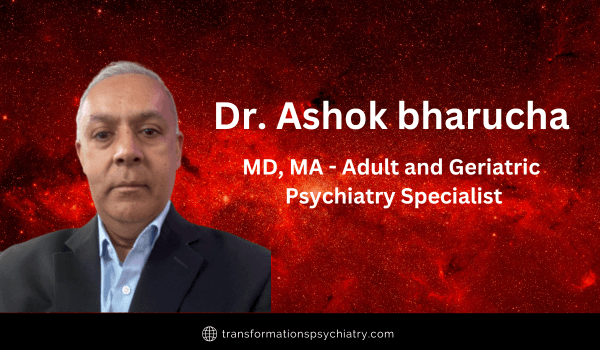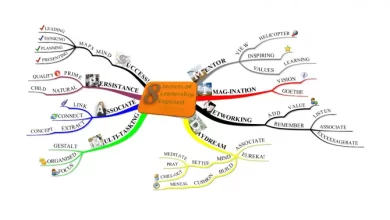Dementia Risk Prediction Revolutionized: An Analysis of AI-based Approaches with Dr. Ashok Bharucha

In a groundbreaking discovery, an international team of researchers from the Hong Kong University of Science and Technology (HKUST) has developed an innovative deep learning model, capable of predicting Alzheimer’s disease (AD) before the onset of symptoms. By analyzing genetic information, this AI-driven model has the potential to revolutionize not only AD diagnosis and interventions but also the research methodologies for other common diseases such as cardiovascular conditions.
Ashok Bharucha, renowned psychiatrist and author of “Healing Hearts: A Doctor’s Perspective on Dementia Care“, views this development with cautious optimism. “While it is still early days, the prospect of using genetic information for risk prediction is promising. We may soon see a paradigm shift in how we approach Alzheimer’s disease, allowing for more proactive interventions and improved patient outcomes,” Bharucha notes.
Deep Learning: A Novel Approach to Alzheimer’s Risk Assessment
Led by Prof. Nancy Ip and Prof. Chen Lei, the HKUST team set out to explore whether deep learning models could effectively assess AD risk using genetic data. Their pioneering model demonstrates greater accuracy in identifying patients with Alzheimer’s and sorting individuals into distinct risk categories based on various biological processes.
Traditionally, AD is diagnosed through cognitive tests and brain imaging. However, these methods often identify the disease at a stage where the optimal intervention window has passed. The team believes that early prediction using the deep learning model combined with genetic testing could change the game entirely.
“It’s important to note that these new methodologies could provide more than a 70% accurate estimate of an individual’s lifetime risk of developing AD,” says Dr. Bharucha. “If these initial results hold up, this represents a significant advancement in our ability to detect and manage AD in its early stages.”
Navigating Genetic Risk Factors
Alzheimer’s, a hereditary disorder, can be attributed to certain genomic variants present from birth. While FDA-approved testing for the APOE-ε4 variant can estimate AD risk, the disease is multifactorial, and relying on a single genetic variant is unlikely to identify all high-risk individuals. Hence, tests that consolidate information from numerous AD risk genes are needed to gauge an individual’s relative risk accurately.
“Understanding that Alzheimer’s disease stems from multiple genetic risks, it’s crucial to consider a holistic approach. Our ability to accurately determine an individual’s relative risk over their lifetime is predicated on our capacity to integrate multiple genetic risks in a cohesive model,” Dr. Bharucha adds.
AI: The Future of Biomedical Research and Healthcare?
Beyond risk prediction, this deep learning approach also paves the way for categorizing individuals based on their disease risk, providing insight into the mechanisms that contribute to the onset and progression of AD. This AI-enhanced categorization could be the key to unveiling the intricacies of underlying disease mechanisms.
“The exciting aspect of AI is its potential to make sense of vast amounts of complex data, as evidenced in this research. This could dramatically enhance our understanding of Alzheimer’s and other diseases, and it is not unlikely that AI will have a crucial role in various healthcare fields in the not-so-distant future,” Bharucha observes.
The groundbreaking study was conducted in collaboration with researchers at the Shenzhen Institute of Advanced Technology, University College London, and clinicians from Hong Kong hospitals. The team is now refining the model, aiming to incorporate it into standard screening workflows, bringing us a step closer to earlier and more effective Alzheimer’s diagnosis and intervention.
The Confluence of AI and Genomics: An Unprecedented Opportunity
The synergistic union of artificial intelligence and genomics, as seen in this groundbreaking research, opens up an unprecedented opportunity for disease diagnosis and intervention. With Alzheimer’s disease, where early detection can significantly alter the course of the disease, this union may indeed prove transformative.
Dr. Ashok Bharucha, reflecting on this intersection of technology and genomics, states, “It’s clear that combining the power of AI with genomic data could present a significant turning point in our battle against Alzheimer’s. The precise impact remains to be seen, but the potential is enormous, bringing hope for earlier detection and potentially more effective interventions.”
Pioneering a New Frontier in Alzheimer’s Disease Prediction
In conclusion, the research breakthrough from HKUST marks a notable step forward in the realm of Alzheimer’s disease prediction and management. The combination of artificial intelligence and genomic data could revolutionize our approach to this and other complex diseases, facilitating early detection and enabling targeted, individualized interventions.
Dr. Ashok Bharucha underscores this pivotal moment: “The road ahead in Alzheimer’s research and care is filled with hope. The potential of AI and genomics in disease prediction and management is only just beginning to be realized. As we refine these models and continue to validate their results, the dawn of a new era in healthcare, one marked by proactive management and personalized treatment strategies, becomes increasingly tangible.”
As science continues to explore this fascinating frontier, the fight against Alzheimer’s appears promising. A future where Alzheimer’s can be effectively predicted, managed, and perhaps even prevented may not be as distant as we once thought. As Dr. Bharucha elucidates in “Healing Hearts: A Doctor’s Perspective on Dementia Care,” early detection is our greatest ally in this fight – and AI is propelling us closer to making that a reality.





